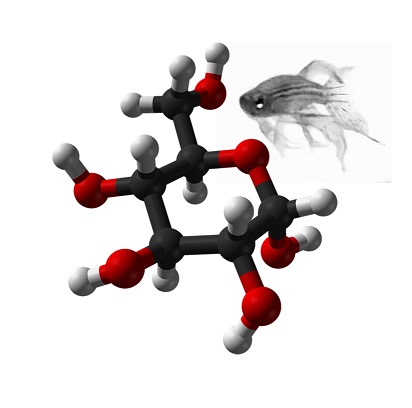Abstract
Virtually all organisms seek to maximize fitness by matching fuel availability with energy expenditure. In vertebrates, glucose homeostasis is central to this process, with glucose levels finely tuned to match changing energy requirements. To discover new pathways regulating glucose levels in vivo, we performed a large-scale chemical screen in live zebrafish and identified the small molecule alexidine as a potent glucose-lowering agent. We found that alexidine inhibits the PTEN-like mitochondrial phosphatase PTPMT1 and that other pharmacological and genetic means of inactivating PTPMT1 also decrease glucose levels in zebrafish. Mutation of ptpmt1 eliminates the effect of alexidine, further confirming it as the glucose-lowering target of alexidine. We then identified succinate dehydrogenase (SDH) as a substrate of PTPMT1. Inactivation of PTPMT1 causes hyperphosphorylation and activation of SDH, providing a possible mechanism by which PTPMT1 coordinates glucose homeostasis. Therefore, PTPMT1 appears to be an important regulator of SDH phosphorylation status and glucose concentration.
